- Home
- George R. R. Martin
The Book of Magic Page 14
The Book of Magic Read online
Page 14
I will have revenge, Masquelayne promised himself, such a revenge as will make the dead quake in their tombs and the yet unborn prefer to postpone existence.
He turned once more to his thaumaturgical resources. But now, instead of seeking a false grail, the end of his labors was clear in his mind. He would start with Lurulan, of the red school.
* * *
—
Lurulan called himself “the Excellence,” though few others did. He was a middling practitioner who was forced to rely on paraphernalia because he lacked a great “potency of axial volition,” the thaumaturge’s term for the power of will. The secret to handling him was to catch him at a distance from his thunderstones and coercive crystals.
Lurulan was vain of his physical appearance. He maintained an aura of youth, preferring to be seen in the guise of a young man just entering into manhood, though he was at least a century older than Masquelayne, who was himself of a grand age. Partly, the effect was achieved by an application of Ibist’s Gratifying Glamour, but Lurulan was not satisfied just to wear a semblance. His vanity required him to underwrite the seeming with the substantive, and thus he paid regular visits to the freshening springs in the Valley of Taza-che.
Masquelayne lay in wait along the route between Lurulan’s manse and Taza-che. Hidden by means physical and magical, he watched as the red wizard skimmed across the landscape in an impregnable bubble of hymestric force. The means of transportation had a flaw: a pursuer could slip into the bubble’s wake and follow undetected. This Masquelayne did, inserting himself into the slipstream and arriving at the springs just as Lurulan stepped from his conveyance, stripping off his robe and buskins in preparation for the immersion.
“Ha!” said Masquelayne. “I have caught you.”
Lurulan was nonplussed but recovered quickly. His hands and fingers assumed a precise position and he opened his mouth to speak. But Masquelayne had the advantage that comes with forethought and preparation. Before the red wizard stepped from the bubble he had already spoken the incantation behind Venath’s Progressive Constraint, so he had only to snap his fingers to render Lurulan mute.
He did not hesitate to move to the next phase of his assault. As the Constraint had begun to rigidify his muscles, Lurulan had stretched out a hand. Now his ruby-tipped wand was wriggling its way out of the pocket of his robe, eager to fly to his grasp. But Masquelayne had anticipated his opponent’s reliance on apparatus, and had placed Tse-Fan’s Temporal Congelator firmly in the front of his mind. He now spoke the four harsh syllables and pointed the index finger whose nail was incised with a rune of power.
Immediately, Lurulan lost all capacity of motion. The wand came to his outreached palm and, ungripped, fell to the ground. Masquelayne stepped forward, picked up the rod, and tucked it into his sash of blue saraphand. Then he smiled.
“You thought you could combine to undo me,” he said. “But I will always be one too many for the likes of you.”
Lurulan regarded him helplessly. He could no more blink than lift a mountain. Masquelayne allowed him a few more moments to appreciate his impending punishment, then he cast the last of the three spells he had memorized for this duel: Bront’s Forlorn Banishment.
As the last harsh syllable sounded, Lurulan ceased to exist on this plane and was transported bodily to the Underworld. There he would remain, until someone bothered to find him and release him from his exile. But since no one save Masquelayne knew where the red wizard had gone, he might be trapped in the Second Plane for quite some time.
Masquelayne gathered up Lurulan’s garments and threw them into the bubble, then boarded it. The controls were elementary, and soon he was skimming the ground in the direction of his eyrie. He thought he might convert the conveyance into a coop for the fowl that provided him with his morning egg.
* * *
—
Lurulan’s bubble performed one last service before becoming an avian shelter: it carried Masquelayne across the Lake of Mists to the island where Ombbo had built his many-turreted stronghold. Lurulan and Ombbo frequently worked together, so the sight of the conveyance wafting to a halt in the latter’s garden drew no suspicion.
Ombbo was tending to his bed of tintinnabulary blossoms when the bubble touched down. He spoke without turning as Masquelayne stepped down.
“Lurulan, come and listen to the tone of this little one. I have rarely heard so pure a note. When it reaches full bloom—”
He got no farther because Masquelayne had again prepared with Venath’s Progressive Constraint. Ombbo’s vocal apparatus ceased to respond to his will, and the spell’s rigor swiftly turned his limbs to a state that only a trained anatomist could distinguish from stone. Bent as he had been to touch his chosen flower, he toppled forward into the bed, raising a sad tinkle from the blossoms he crushed.
Masquelayne rolled him out of the flowers and onto his back so Ombbo could know who had been his undoing. He now passed several remarks that expressed his opinion of Ombbo’s character and capabilities as a thaumaturge, some of which he had wanted to say for quite some time, others of which came to him on the inspiration of the moment.
He had planned to send Ombbo to join his ally in the Second Plane, but looking around at the perfectly ordered gardens, he felt a surge of vindictive creativity. He rolled the frozen man to the center of a stretch of lawn, then went to the bubble and retrieved the grimoire he had been using to load the spells with which he had armed himself. He discharged the unused spells of congelation and banishment, then sought for two others. Shortly thereafter, he returned to where Ombbo’s bent and rigid form waited.
Masquelayne spoke the harsh syllables of Twysk’s Vegetative Compulsion, using the addition that would specify the precise type of plant Ombbo would now become. It was a tall and spreading oak, with plenty of outreaching branches and twigs—just the kind of tree that would appeal to birds seeking nesting sites.
But Masquelayne did not rely on nature taking its course. Instead, he used a rarely employed variant of a simple spell chanted by traveling hedge sorcerers to drive crop-raiding birds from farmers’ fields. Soon after he performed the last gesture, a flock of some three hundred lesser speckled grick-gracks arrived and took up residence in the tree that had been Ombbo. The birds began to emit the harsh and raucous cries for which they had been named, canceling entirely the musical chimes from the tintinnabulary beds.
Masquelayne had to shout over the cacophony. “That is the sound of my revenge, Ombbo! You will hear it, morning to night. And I may send you a plague of bark beetles to feed the birds and keep you constantly itchful.”
With that, he entered Ombbo’s keep, frightened away the retainers, and helped himself to whatever took his fancy.
* * *
—
“Masquelayne, it is Casprine who speaks!”
“Speak on,” said Masquelayne. He twitched a finger, and a simulacrum of the vulpine thaumaturge came to float above the aspekton.
“I have received an inquiry from Shevance the Insightful. She has been unable to contact Lurulan the Excellence. She then tried to reach Ombbo, again without success.”
“Those two often traffic together. Perhaps they have gone off on some jaunt.”
“Perhaps,” said Casprine, “except that Shevance says she visited Ombbo’s island and found the place in disarray.”
Masquelayne’s hand dismissed the issue. “I cannot comment on Ombbo’s housekeeping.”
Casprine said nothing, but the hovering image peered at him in a manner Masquelayne found offensive. He said, “This afternoon, I am engaged in demanding research. If you have nothing more to say…”
“I think we should meet,” said Casprine.
“I will expect you tomorrow.”
“It would be better if you came to me.”
Masquelayne’s brows expressed his equanimity. “As you wish. I shall come a
gain by the Glooms.”
“Yes,” said Casprine, “do.”
* * *
—
But Masquelayne did not come by that route. Instead, he flew to Casprine’s mountain in his sylph-drawn carriage and alighted before the great doors that led to the long-dead king’s Grand Processional Way that angled down to the wizard’s subterranean chambers. He used Boix’s Comprehensive Rupture to burst the portal, as well as every barrier between him and his target, then rushed down to where Casprine lurked in the tunnel that led from the Glooms to his door.
Masquelayne had fashioned a golem and sent it by way of the Glooms, timing its arrival to coincide with his own. The shambling creature had not delayed the thaumaturge for long, but Masquelayne was quick when he needed to be. Casprine was still recovering from the effects of the Rupture—it shattered doors and sent splinters flying—when Masquelayne arrived to confront him.
On his last visit, Masquelayne had equipped himself not only with Boix’s Comprehensive Rupture, but with Zinezan’s Comprehensive Cloak, and Willifant’s Penetrating Beam. Casprine was an able wizard and would have detected the auras of these spells. It would be reasonable for him to expect that today’s use of the Rupture would be followed by the Beam, while his assailant sought to protect himself behind the Cloak.
But Masquelayne was a subtle duelist. He had indeed armored himself in the Cloak, but he had left the Beam behind. So when, upon his appearance, Casprine immediately threw up Chup’s Scintillating Prism—the recommended defense against Willifant’s Penetrating Beam—its refractions proved useless against the spell Masquelayne did employ: Ovanian’s Overwhelming Thrust. The column of force threw Casprine some distance down the tunnel and left him momentarily breathless.
Thus he was unable to cast the spell he had taken into his mind—Bardolf’s Enclosing Crush—which would have created a shroud of force around Masquelayne’s Cloak and driven it inward. Masquelayne would have ended his days as a blob of matter so densely compressed that it would have sunk through solid rock to the world’s molten core.
But Bardolf’s spell required a strong voice to vibrate the fluxions, and Casprine was temporarily bereft of speech. All he could do was direct a line of coldfire from an outstretched finger, which Masquelayne ignored, safe behind the Comprehensive Cloak. He advanced down the tunnel to the optimum distance for the spell he intended to hurl at Casprine, pausing just long enough to make his breathless opponent aware of what was about to happen.
“Pablillo’s Entropic Accelerator,” Masquelayne said. “I found it in a very old grimoire that used to be Ombbo’s, though I doubt he ever would have come across this particular cantrip. The book was most strong-willed. It took me half of yesterday to wrest the spell from it. You will recall that I said I was researching. Now you shall have the fruits of my labors.”
It was a complex incantation, a primitive leftover from the Eighteenth Aeon when fluxions were more raw and their palpitations required a certain fierceness of spirit. But Masquelayne was ferocious in his desire to punish any who did him wrong, and Casprine had been classed as among that breed.
He pitched his voice in a harsh, hoarse shout and chanted the twelve syllables in a percussive rhythm. As he spoke the last sound, the walls of the tunnel seemed to billow and shiver like agitated jelly. Then he chanted the dodecaphone a second time, and the floor rose and fell in a series of ripples. And now he shouted the dozen ergophones a final time, accompanying his utterance of the last one with a smash of his balled fist into his palm.
All light fled the tunnel and a soughing wind blew Masquelayne’s robes about him. Then the lumens relit themselves and he saw the effects of the spell. A huddle of bones wrapped in skin that was like parchment and topped with a few wisps of hair slumped against the tunnel wall. It was clothed in rags that were disintegrating and falling to dust even as Masquelayne watched. In the next moment, the dried flesh collapsed inward, the bones fell apart, and then even they crumbled into fragments.
Masquelayne stooped and recovered Casprine’s wand. He would mount it on the wall of his dining hall, along with the others he had won in duels. Then he turned to enter the defeated enemy’s demesne, to see what other spoils might be got.
* * *
—
“Masquelayne,” said a voice, interrupting his researches, “it is Foubaye the Arbiter who speaks!”
He was tempted to ignore the contact, being deep into his preparations for the punishment of the upstart Poddlebrim, but Foubaye was the most senior Fellow of the College of Thaumaturgy. As such, he had not only real power in his own right, but a rank that allowed him to call on other great practitioners to form a wizardly phalanx that was invincible. Masquelayne put down the tome—formerly Casprine’s—he had been wrestling with and said, “Speak on.”
Today, Foubaye affected the appearance of a callow youth clothed in a harlequin and quilted cap. As his image appeared in the workroom, he took a quick inventory of Masquelayne’s possessions and said, “So it is true. You have attacked your fellow wizards and despoiled them of their goods. And this after the amity that prevailed at the Grand Symposium.”
“They conspired against me,” Masquelayne said. “The punishments were apt.”
“Where is your proof of conspiracy?” Foubaye said. “And why did you not lay a complaint before the College?”
“I saw through their schemes and acted with dispatch. There was no need to involve you and the Fellows.”
Foubaye stroked his beardless chin. “There will be an inquiry. Hold yourself ready for our summons.”
Masquelayne waited to see if there would be conditions. He did not want to be confined to his estate pending the hearing. But Foubaye contented himself with ordering him to make no further assaults on colleagues. With a sniff, Masquelayne said he would forbear.
When the simulacrum winked out, he summoned his demon and asked, “Has Poddlebrim been accepted into the College?”
“He has applied, but his request is still under consideration. His case is complicated.”
“Then he is not my colleague.” Masquelayne dismissed the fiend and threw himself back into his preparations. It would take days to coordinate the schedules of enough senior Fellows to form a panel for Foubaye’s inquiry—more than time enough.
* * *
—
At his best, Masquelayne could absorb three major spells at one time. But to deal with the detestable Poddlebrim, now that the false front for the conspirators no longer had their combined strengths to support him, Masquelayne chose five less difficult cantrips. And he took his best wand.
He meant to inflict humiliations upon the hedge sorcerer: to make him itch, to make him dance to exhaustion, to distress him with drooling and incontinence, to transform him into a hunchbacked, wart-infested grotesque, and finally to transport him to the island continent in the southern ocean and leave him there to fend for himself among anthropophagic beasts.
He called for his carriage, swept his cape about himself, and set forth. He landed near Poddlebrim’s cottage and marched straight along the path to the front entrance, humming a triumphal tune. He struck the door thrice with a fist, then reached for the latch, expecting the occupant by now to be scurrying out a rear window. Instead, the door swung open to reveal Poddlebrim, clothed in the same nondescript robe he had worn to the Grand Symposium, blinking at him in what looked to be a failure of recognition.
Then the man’s expression cleared and he said, “The one with the harpsichont, of course! Forgive me, I’ve forgotten your name.”
Masquelayne smiled a smile that, in the past, had frozen blood. “It won’t do, Poddlebrim. I know everything.”
“Really?” said the little man. “I’ve never known anyone who knew everything. I’d be interested to explore your epistemological methods.”
“Enough,” said Masquelayne. “Your co-conspirators have been dealt w
ith. Now it is your turn.” He brushed past Poddlebrim and entered the small house. It was as he had seen it before. He turned and regarded the object of his punishment. “Do you wish to beg for mercy?”
Poddlebrim closed the door and folded his hands in the sleeves of his robe. He cocked his bald head to one side and studied Masquelayne as if he were a specimen he had just discovered had been mislabeled.
“You have me at a disadvantage,” he said. “I was not aware I was part of a conspiracy.”
Masquelayne’s face hardened. “I said, ‘enough,’” he said. “We will begin.”
He produced his wand, pointed it, and spoke the opening sura of Tees’s Mutable Itch. But something was wrong. He could hear his own voice intoning the sibilant ergophones, but they were not echoing in his mind with the reverberations that signified their power. Masquelayne shook his head and spoke the second sura, wondering as he did so if he had somehow neglected some aspect of the childishly simple spell, for the fresh syllables also carried no resonance.
Meanwhile, Poddlebrim regarded him as if he were a dull student essaying a difficult recitation and making a poor fist of it. Masquelayne fought down his anger; Tees’s Itch could reverse its polarity if the final sura wasn’t pronounced exactly, and the embarrassment of such a failure would trouble him, even though Poddlebrim would never live to shame him with it. So he spoke the syllables carefully and moved his wand in the required three small circles.
Nothing happened. No line of blue force, no burst of an aura around Poddlebrim, no agonizing expression taking over the bland face as the traveling itch took hold.
Poddlebrim said, “Was that supposed to be a spell?”
Masquelayne could make no reply. Not even as a faltering first-month apprentice had he ever failed to cast so simple an incantation. He looked at his wand, shook it.
“It won’t work here,” Poddlebrim said. “Argent and sable fluxions. Didn’t we discuss this when you visited before?”

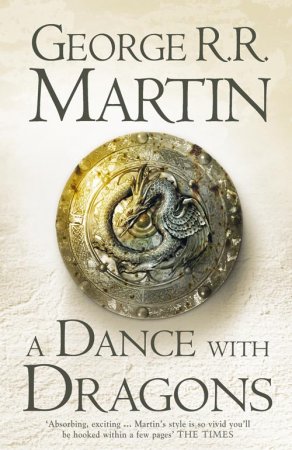 A Dance with Dragons
A Dance with Dragons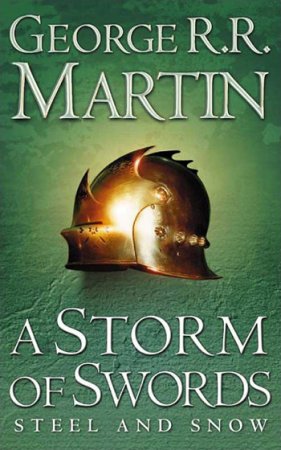 A Storm of Swords
A Storm of Swords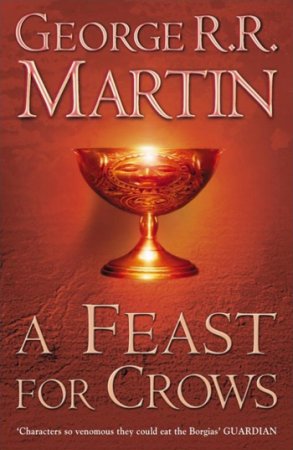 A Feast for Crows
A Feast for Crows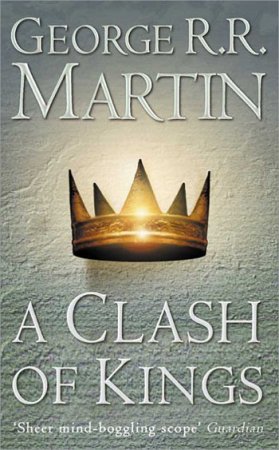 A Clash of Kings
A Clash of Kings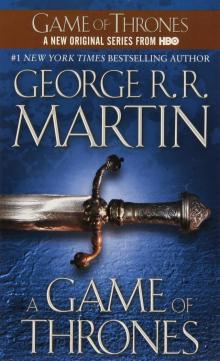 A Game of Thrones
A Game of Thrones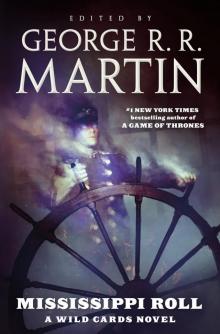 Mississippi Roll
Mississippi Roll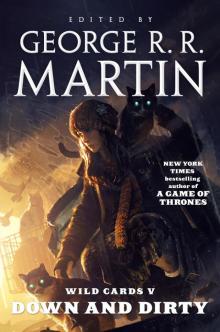 Wild Cards V: Down and Dirty
Wild Cards V: Down and Dirty Busted Flush
Busted Flush When the Devil Drives
When the Devil Drives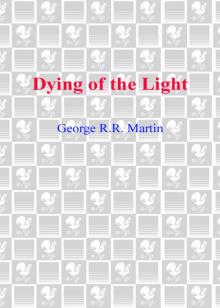 Dying of the Light
Dying of the Light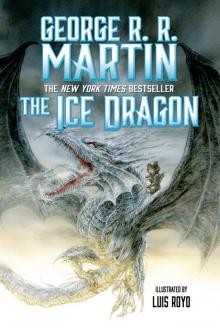 The Ice Dragon
The Ice Dragon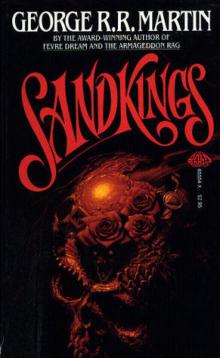 Sandkings
Sandkings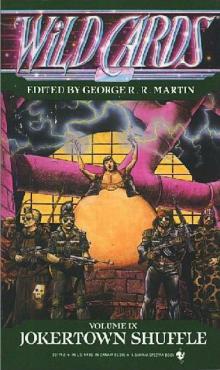 Jokertown Shuffle
Jokertown Shuffle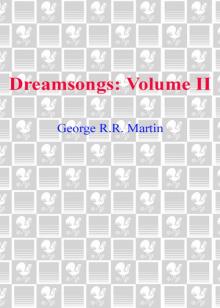 Dreamsongs. Volume II
Dreamsongs. Volume II Deuces Down
Deuces Down When We Were Heroes
When We Were Heroes Warriors
Warriors In the House of the Worm
In the House of the Worm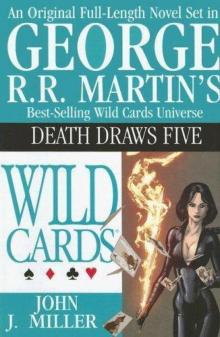 Death Draws Five
Death Draws Five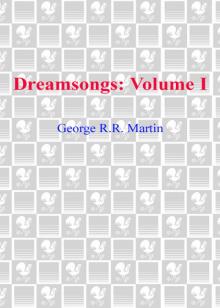 Dreamsongs. Volume I
Dreamsongs. Volume I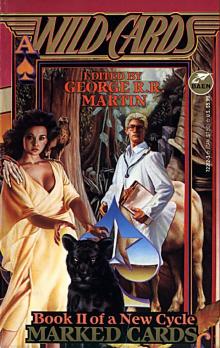 Marked Cards
Marked Cards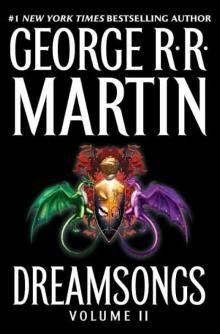 Dreamsongs
Dreamsongs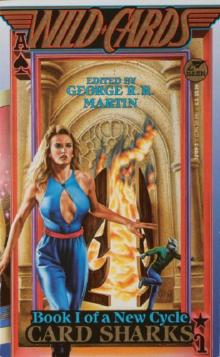 Card Sharks
Card Sharks Dangerous Women
Dangerous Women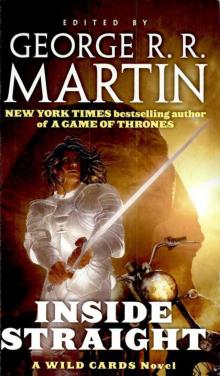 Inside Straight
Inside Straight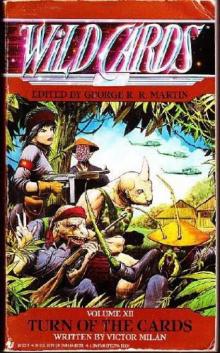 Turn of the Cards
Turn of the Cards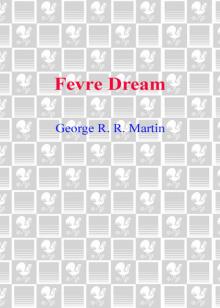 Fevre Dream
Fevre Dream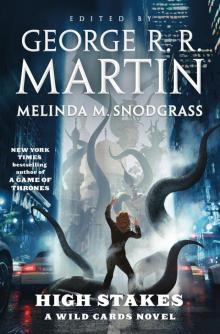 High Stakes: A Wild Cards Novel
High Stakes: A Wild Cards Novel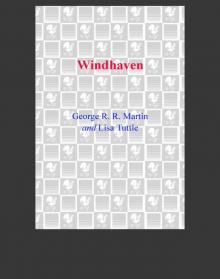 Windhaven
Windhaven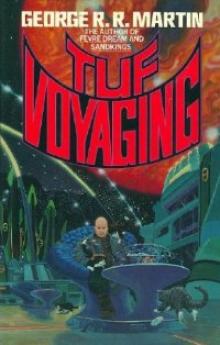 Tuf Voyaging
Tuf Voyaging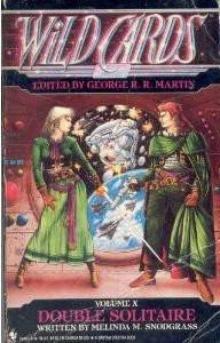 Double Solitaire
Double Solitaire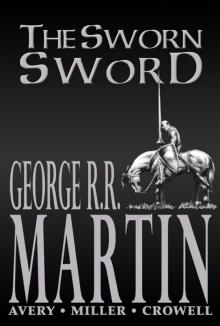 The Sworn Sword
The Sworn Sword Low Chicago
Low Chicago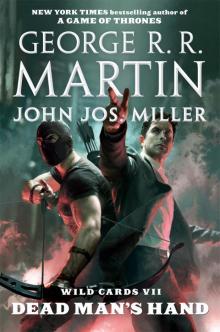 Dead Man's Hand
Dead Man's Hand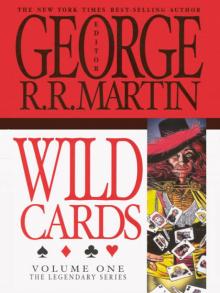 Wild Cards
Wild Cards Black Trump
Black Trump One Eyed Jacks
One Eyed Jacks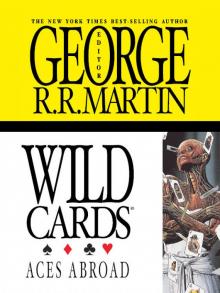 Wild Cards: Aces Abroad
Wild Cards: Aces Abroad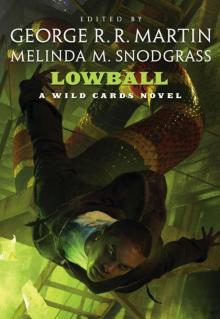 Lowball: A Wild Cards Novel
Lowball: A Wild Cards Novel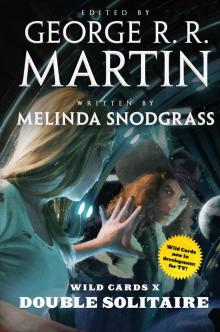 Double Solitaire (2019 Edition)
Double Solitaire (2019 Edition) Dealer's Choice
Dealer's Choice Ace in the Hole
Ace in the Hole A Song for Lya: And Other Stories
A Song for Lya: And Other Stories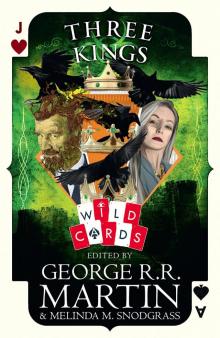 Three Kings
Three Kings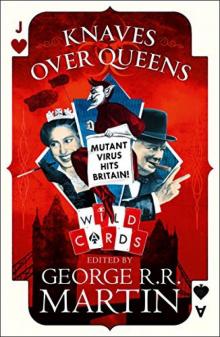 Knaves Over Queens
Knaves Over Queens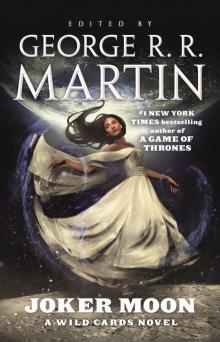 Joker Moon
Joker Moon One Eyed Jacks wc-8
One Eyed Jacks wc-8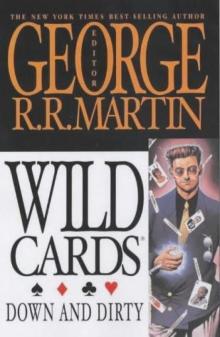 Down And Dirty wc-5
Down And Dirty wc-5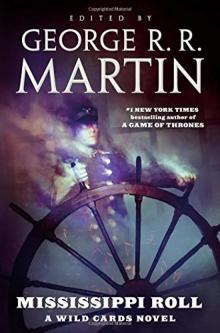 Mississippi Roll_A Wild Cards Novel
Mississippi Roll_A Wild Cards Novel A Feast for Dragons
A Feast for Dragons The Sworn Sword ttodae-2
The Sworn Sword ttodae-2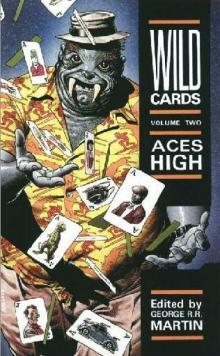 Aces High wc-2
Aces High wc-2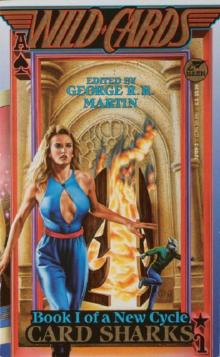 Wild Cards 13 : Card Sharks
Wild Cards 13 : Card Sharks Way of the Wizard
Way of the Wizard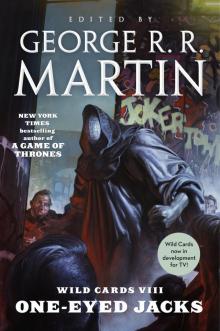 Wild Cards VIII: One-Eyed Jacks
Wild Cards VIII: One-Eyed Jacks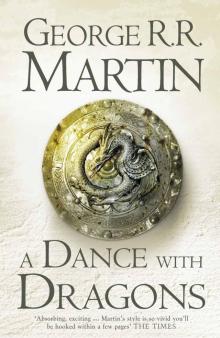 A Dance With Dragons: Book 5 of A Song of Ice and Fire (Song of Ice & Fire 5)
A Dance With Dragons: Book 5 of A Song of Ice and Fire (Song of Ice & Fire 5) The Princess and The Queen, Or, The Blacks and The Greens (a song of ice and fire)
The Princess and The Queen, Or, The Blacks and The Greens (a song of ice and fire)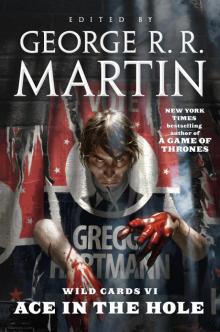 Wild Cards VI--Ace in the Hole
Wild Cards VI--Ace in the Hole The World of Ice & Fire: The Untold History of Westeros and the Game of Thrones (A Song of Ice and Fire)
The World of Ice & Fire: The Untold History of Westeros and the Game of Thrones (A Song of Ice and Fire) The World of Ice & Fire: The Untold History of Westeros and the Game of Thrones
The World of Ice & Fire: The Untold History of Westeros and the Game of Thrones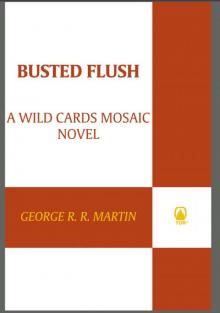 Busted Flush wc-19
Busted Flush wc-19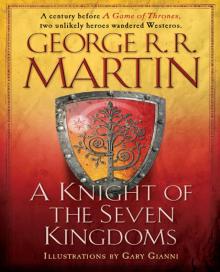 A Knight of the Seven Kingdoms
A Knight of the Seven Kingdoms Nightflyers: The Illustrated Edition
Nightflyers: The Illustrated Edition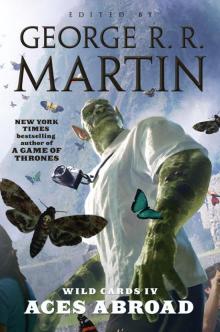 Wild Cards IV
Wild Cards IV Portraits of His Children
Portraits of His Children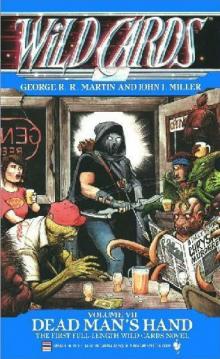 Dead Mans Hand wc-7
Dead Mans Hand wc-7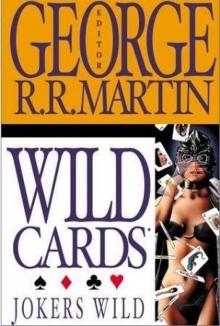 Jokers Wild wc-3
Jokers Wild wc-3 The Lonely Songs of Laren Dorr
The Lonely Songs of Laren Dorr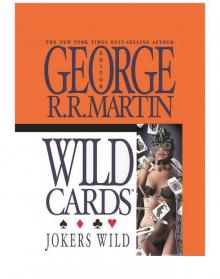 Wild Cards III: Jokers Wild
Wild Cards III: Jokers Wild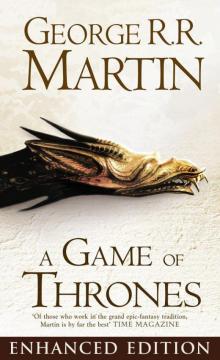 A Game of Thrones Enhanced Edition
A Game of Thrones Enhanced Edition Nightflyers & Other Stories
Nightflyers & Other Stories Armageddon Rag
Armageddon Rag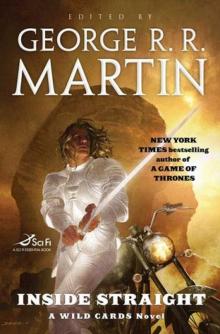 Wild Cards: Inside Straight
Wild Cards: Inside Straight A Song for Lya
A Song for Lya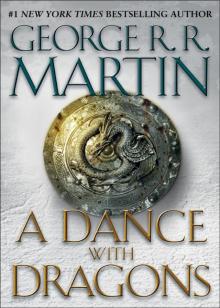 A Dance with Dragons: A Song of Ice and Fire: Book Five
A Dance with Dragons: A Song of Ice and Fire: Book Five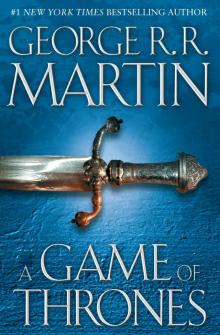 Song of Fire & Ice 01 - A Game of Thrones
Song of Fire & Ice 01 - A Game of Thrones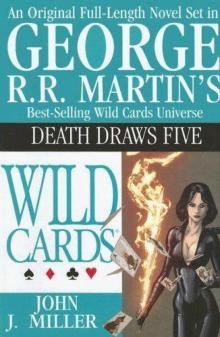 Death Draws Five wc-17
Death Draws Five wc-17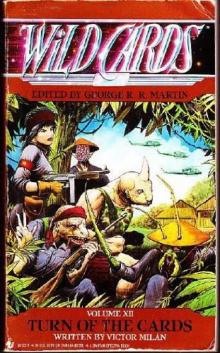 Turn of the Cards w-12
Turn of the Cards w-12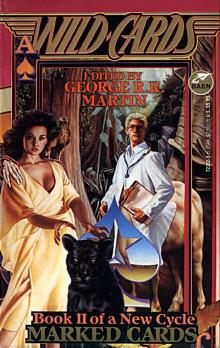 Wild Cards 14 - Marked Cards
Wild Cards 14 - Marked Cards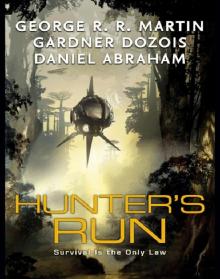 Hunter's Run
Hunter's Run The Glass Flower
The Glass Flower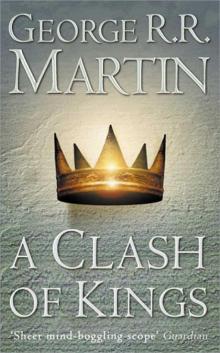 A Clash of Kings asoiaf-2
A Clash of Kings asoiaf-2 A Game of Thrones 5-Book Bundle: A Song of Ice and Fire Series: A Game of Thrones, A Clash of Kings, A Storm of Swords, A Feast for Crows, and A Dance with Dragons (Song of Ice & Fire)
A Game of Thrones 5-Book Bundle: A Song of Ice and Fire Series: A Game of Thrones, A Clash of Kings, A Storm of Swords, A Feast for Crows, and A Dance with Dragons (Song of Ice & Fire)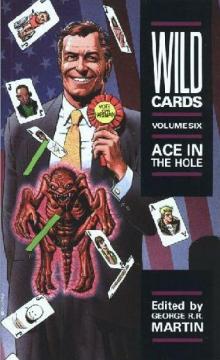 Ace In The Hole wc-6
Ace In The Hole wc-6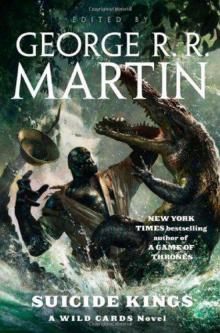 Suicide Kings wc-20
Suicide Kings wc-20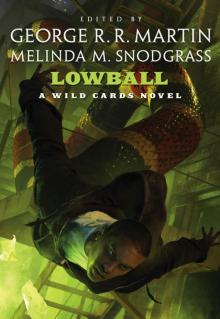 Lowball
Lowball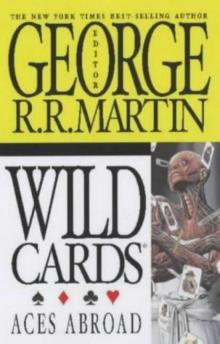 Aces Abroad wc-4
Aces Abroad wc-4 George R. R. Martin's a Game of Thrones 4-Book Bundle
George R. R. Martin's a Game of Thrones 4-Book Bundle A Feast for Crows asoiaf-4
A Feast for Crows asoiaf-4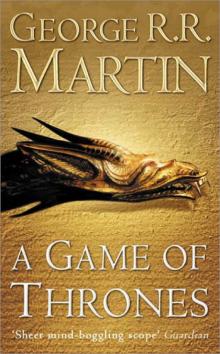 A Game of Thrones asoiaf-1
A Game of Thrones asoiaf-1 The Mystery Knight ttodae-3
The Mystery Knight ttodae-3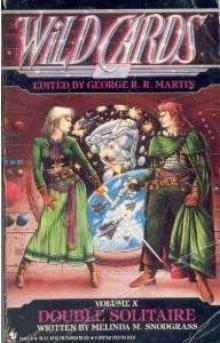 Double Solitaire w-10
Double Solitaire w-10 Wild Cards 15 - Black Trump
Wild Cards 15 - Black Trump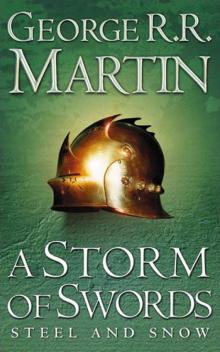 A Storm of Swords asoiaf-3
A Storm of Swords asoiaf-3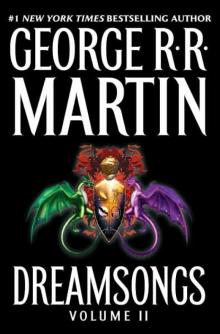 The Hedge Knight ttodae-1
The Hedge Knight ttodae-1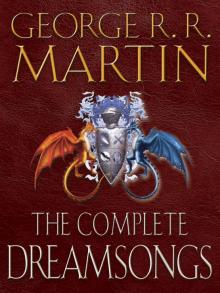 Dreamsongs 2-Book Bundle
Dreamsongs 2-Book Bundle The World of Ice & Fire
The World of Ice & Fire Starlady & Fast-Friend
Starlady & Fast-Friend Old Mars
Old Mars Fantasy For Good: A Charitable Anthology
Fantasy For Good: A Charitable Anthology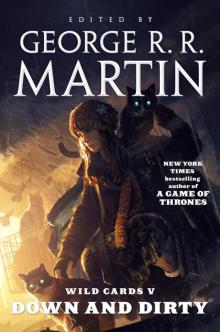 Wild Cards V
Wild Cards V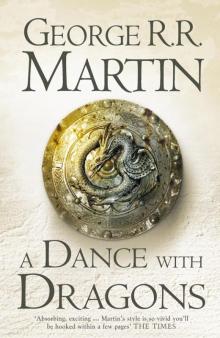 A Dance with Dragons asoiaf-5
A Dance with Dragons asoiaf-5 Dealer's Choice w-11
Dealer's Choice w-11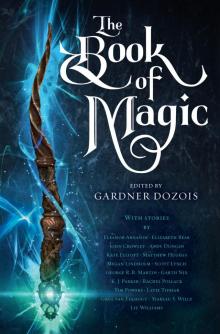 The Book of Magic
The Book of Magic A Game of Thrones 4-Book Bundle
A Game of Thrones 4-Book Bundle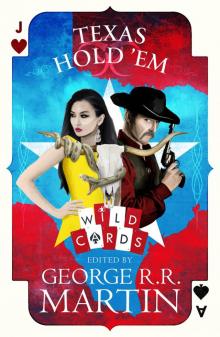 Texas Hold 'Em
Texas Hold 'Em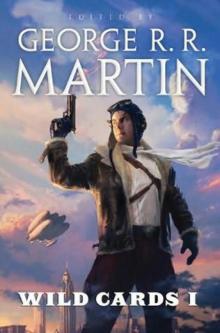 Wildcards wc-1
Wildcards wc-1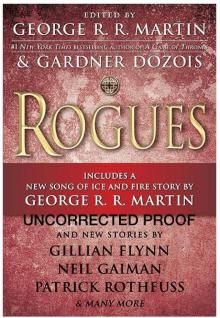 Rogues
Rogues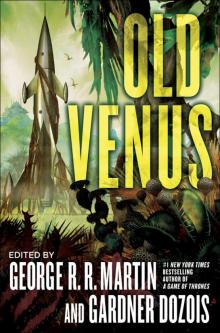 Old Venus
Old Venus